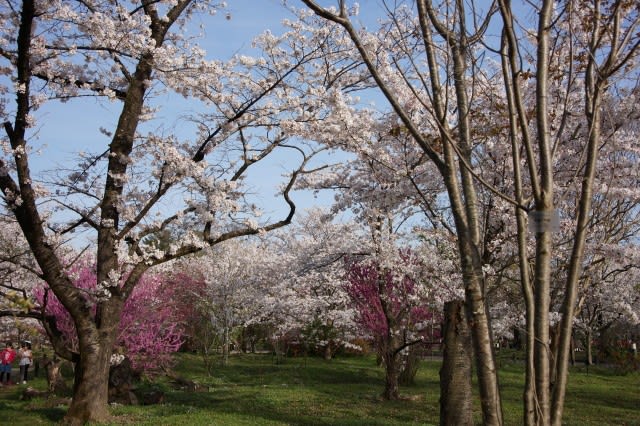I decided to cancel my subscription to the Asahi Shimbun seven years ago in August.
It was because I was disgusted by the reality of the Asahi Shimbun.
For a while, I subscribed to the Asahi Shimbun in the sense of examining the paper's pages, but I hardly felt like reading it.
I am not a person who makes a living from speech.
It is the duty of every person who makes a living from speech to verify the Asahi Shimbun's pages.
I am not usually the one that handles it.
So I stopped my subscription completely.
Masayuki Takayama was the representative of those who had been publishing articles that perfectly fulfilled their duties.
To correct the world's misunderstanding of the Asahi Shimbun as Japanese common sense, I have published almost all of his articles in various languages.
Since February 19, the criminal, who readers know very well, is genuinely "abysmal evil" and "plausible lies."
He begins to remove from the search not only all of them but almost all the chapters that I appeared and sent to the world in July 2010 as the turntable of civilization.
In late August 2010, while out on bail after being arrested for defrauding Ehime Bank of 150 million yen, this criminal showed up at our building with three men and a woman, asking to rent about 20 square meters an office.
Since then, not only were they not paid a single penny of deposit or rent for six months, but they also defrauded us of 3.5 million yen in air conditioner fraud and a large sum of money, almost as much as Ehime Bank.
He brought us to our office several times, claiming that he had a cute daughter, and took advantage of the fact that we were child-loving people and deceived us.
In other words, he has even used his children for his crimes.
At the end of my business life, I unexpectedly encountered such criminals. The anger and disappointment of having our retirement funds stolen from us, so to speak, became killer stress. I was diagnosed with a severe illness with a 25% chance of survival.
It took seven months of hospitalization, but I made a full recovery thanks to the excellent doctors and nurses at the hospital, which is practically equivalent to Kyoto University Hospital.
I have already mentioned that I filed a criminal complaint against them for their illegal activities on the Internet.
At that time, famous actresses such as Masami Nagasawa and Keiko Kitagawa had their passwords stolen by a 28-year-old man in Osaka. Still, he was convicted after only a year and a half.
Not only am I a complete unknown, but I had to go it alone in all three criminal cases involving this man.
I lacked the money to pay the appropriate law firm.
It took about three years for all three cases to come to the Osaka District Public Prosecutors Office.
The person in charge of the Internet case was an old lady prosecutor.
This prosecutor, like us, had fallen for this man's deception techniques.
It was unbelievable to see the severity of the criminal activities that this man had started on the Internet after June 1, 2011.
The lawyer I had consulted with through a close acquaintance was a former prosecutor who not only hated the prosecutor's "stand-up" mentality and the way the prosecutor's office only filed cases that were 100% convictable.
He was also a person who had the tendencies that many people my age have.
He hated computers, he hated looking at the Internet, and he couldn't understand why anyone would be on the Internet.
My best friend from high school, one of the best students at one of the most advanced schools in Japan, retired saying in his Sendai dialect that he had never even touched a computer.
At first glance, even this lawyer said, "This is terrible... obstruction of business, defamation, false accusation..." It was such a criminal act.
It was so bad that I wrote down the whole story and sent it out from my hospital room to try to stop this man's act.
In true fraudulent fashion, he used my impassioned and reluctant rebuttal to the prosecutor as an excuse to cry foul.
He made it sound like he was the victim, and I was the perpetrator.
One of the things that came up was his daughter.
It is common sense that if one's daughter is that cute and essential, one will not commit a crime.
As for the criminal activities that this man had frequently engaged in before February 19, I infer the following from a search on the Internet.
Attacks by cloud servers to guess search terms
A paper presented at a conference by two professors from Hiroshima University
"In conventional searchable cryptography, there is an attack to guess the search keyword by cloud servers. This paper proposes a searchable public-key cryptosystem that is secure against keyword-guessing attacks by servers. In the proposed scheme, the secret key is shared between the encryptor and the searcher using broadcast cryptography to prevent the server from encrypting the private key. We then evaluate its performance based on the implementation.
Author(s): Takanori Saito (Hiroshima Univ.),
Toru Nakanishi (Hiroshima Univ.)
Title: IPSJ Symposium Series (CD-ROM) (IPSJ Symposium Series (CD-ROM))
Volume: 2016
No.: 2 Page: ROMBUNNO.2C3-1 Publication Date: October 04, 2016
JST reference number: L6741A ISSN: 1882-0840
This article continues.











